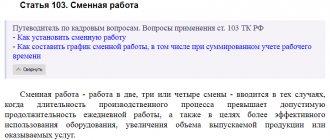ST 72 of the Criminal Code of the Russian Federation.
1. The terms of deprivation of the right to hold certain positions or engage in certain activities, correctional labor, restrictions on military service, restrictions on freedom, forced labor, arrest, detention in a disciplinary military unit, imprisonment are calculated in months and years, and for compulsory labor - in hours.
2. When replacing punishment or adding punishments provided for in part one of this article, as well as when counting off punishment, the terms of punishment may be calculated in days. Moreover, taking into account the provisions of part one of Article 71 of this Code, two hundred and forty hours of compulsory labor correspond to one month of imprisonment or forced labor, two months of restriction of freedom, three months of correctional labor or restrictions on military service.
3. The time a person is held in custody before the court verdict enters into legal force is counted towards the terms of detention in a disciplinary military unit at the rate of one day for one and a half days, restriction of freedom, forced labor and arrest - one day for two days, correctional labor and military restrictions service - one day for three days, and during the period of compulsory work - at the rate of one day of detention for eight hours of compulsory work.
3.1. The time a person is in custody is counted towards the term of imprisonment, except for the cases provided for in parts three.2 and three.3 of this article, at the rate of one day per:
a) one day of serving a sentence in a prison or correctional colony of strict or special regime;
b) one and a half days of serving the sentence in an educational colony or a general regime correctional colony;
c) two days of serving the sentence in a colony settlement.
3.2. The time a person is held in custody is counted towards the term of imprisonment at the rate of one day per day in relation to those convicted of particularly dangerous recidivism of crimes; convicts for whom the death penalty by way of pardon has been replaced by life imprisonment or imprisonment for a term of twenty-five years; convicted for crimes provided for in Articles 205 - 205.5, parts three and four of Article 206, articles 208, 209, part four of Article 211, parts two and three of Article 228, articles 228.1, 229, 275, 276, 361 of this Code, and associated with carrying out terrorist activities are crimes provided for in Articles 277 - 279 and 360 of this Code.
3.3. The time a person is in custody is counted towards the term of imprisonment at the rate of one day for one day in relation to the period of stay of a convicted person serving a sentence under strict conditions in an educational colony or a general regime correctional colony, in a penal or disciplinary isolator, a cell-type premises or a single cell-type premises type, in the case of applying penalties to a convicted person in accordance with the penal legislation of the Russian Federation.
3.4. The time a person is under house arrest is counted towards the period of detention pending trial and the period of imprisonment at the rate of two days under house arrest for one day of detention or imprisonment.
4. The time of holding a person in custody before the court verdict enters into legal force and the time of serving imprisonment imposed by a court verdict for a crime committed outside the Russian Federation, in the case of extradition of a person on the basis of Article 13 of this Code, are counted according to the rules established by parts three and third.1 of this article.
5. When assigning a fine or deprivation of the right to hold certain positions or engage in certain activities as the main type of punishment to a convicted person held in custody before trial, the court, taking into account the period of detention, mitigates the imposed punishment or completely exempts him from serving this sentence.
Commentary to Art. 72 Criminal Code
1. When assigning punishment for a set of crimes and a set of sentences, it is important to remember how the punishment is calculated.
2. The criminal law contains two rules for counting a preventive measure in the form of detention (Article 108 of the Code of Criminal Procedure of the Russian Federation) within the term of the sentence imposed by the court:
a) the time of detention is counted towards the term of the finally imposed punishment (i.e. punishment for one crime or for a combination of crimes or sentences) in the proportion established for each specific type of main punishment (Part 3 of Article 72 of the Criminal Code);
b) if a person was taken into custody before the trial, but the court imposed a fine or deprivation of the right to hold certain positions or engage in certain activities as the main type of punishment, then the court has the right, at its discretion, to either mitigate the imposed punishment within the sanction of the article of the Special Part The Criminal Code is to impose a minimum sentence, or, having imposed a punishment in the form of a fine or deprivation of the right to hold certain positions or engage in certain activities, completely and unconditionally release the person from serving it.
Self-executed punishments
Only those types of basic punishments in respect of which in Part 1 of Art. 71 of the Criminal Code of the Russian Federation provides for the procedure for determining the terms of punishments when they are added.
If, when imposing punishment for a set of crimes and a set of sentences for one crime included in the set, a fine or deprivation of the right to hold certain positions or engage in certain activities, deprivation of a special, military or honorary title, class rank and state awards is imposed, and for another crime - restriction of freedom, arrest, detention in a disciplinary military unit, deprivation of liberty, then when they are added, they are executed independently . Moreover, the operative part of the sentence in such cases should indicate the application of Art. Art. 69 or 70 of the Criminal Code of the Russian Federation, as well as for their independent execution.
In other words, a fine imposed under one sentence and imprisonment under another sentence are executed independently; fines and restrictions of freedom imposed for crimes included in a set of crimes are executed independently; deprivation of the right to hold certain positions or engage in certain activities and deprivation of liberty are executed independently, etc.
Second commentary to Art. 72 of the Criminal Code of the Russian Federation
1. Different types of punishment are calculated in different units, which are determined by the content of a particular type of punishment.
The terms of deprivation of the right to hold certain positions or engage in certain activities, correctional labor, restrictions on military service, restrictions on freedom, forced labor, arrest, detention in a disciplinary military unit, imprisonment, as a general rule, are calculated in months and years, and for compulsory labor - in hours.
2. However, when replacing punishment or adding punishment in the form of deprivation of the right to hold certain positions or engage in certain activities, correctional labor, restrictions on military service, restriction of freedom, forced labor, arrest, detention in a disciplinary military unit, imprisonment, as well as when punishment, the calculation of the final terms of punishment in months and years cannot be completely fair (for example, several days are missing from a full month, or, on the contrary, a full month, if accurately calculated, is exceeded by several days). Therefore, the terms of punishment in such cases can be calculated in days.
3. Taking into account the provisions of Part 1 of Art. 71 of the Criminal Code, according to the calculation of the correspondence of one day of imprisonment to other types of punishment, the legislator in Part 2 of Art. 71 of the Criminal Code makes calculations of monthly indicators of imprisonment, compulsory labor, forced labor, restriction of freedom, correctional labor and restrictions on military service. They are as follows: two hundred and forty hours of compulsory labor corresponds to one month of imprisonment or forced labor, two months of restriction of freedom, three months of correctional labor or restrictions on military service.
4. One of the measures of procedural coercion - detention - in terms of the severity of the impact on a person, is quite comparable to deprivation of liberty as a type of criminal punishment, and sometimes, in terms of the conditions of its serving, it exceeds in severity deprivation of liberty. In fact, the conditions of detention of suspects and accused of committing crimes correspond to the strictest in terms of isolation, approximately the same as in prisons. In pre-trial detention centers and premises functioning as pre-trial detention centers, suspects and accused are housed in closed cells and have virtually no opportunity to engage in any type of activity. During the day, they are allowed only an hour-long walk in the exercise yard.
Therefore, it is incorrect not to take into account the fact that the person was in custody before the punishment was imposed.
The Committee of Ministers of the Council of Europe adopted Recommendation Rec(99)22 regarding prison overcrowding and excessive increase in the prison population, according to which, in the case of a sentence imposed by a court that does not involve keeping the convicted person in a cell, it is advisable to count the time spent in places of detention as part of the term of serving a sentence with a coefficient greater than one. The European Court of Human Rights, when considering complaints from convicted persons, proceeds from the fact that the conditions of detention should not be stricter than the conditions of serving a criminal sentence imposed by the court.
Taking into account the above, the calculation of periods of detention has undergone significant changes depending on the type of correctional institution that is assigned to the convicted person to serve a sentence of imprisonment; The rules for counting have also been changed in relation to some other types of punishment.
5. In part 3, as well as in part. 31, 32, 33, 34 art. 72 of the Criminal Code legally defines the rules of offset.
The time a person is held in custody before the court verdict enters into legal force is counted towards the terms of detention in a disciplinary military unit at the rate of one day for one and a half days, restriction of freedom, forced labor and arrest - one day for two days, correctional labor and restrictions on military service - one day for three days, and during the period of compulsory work - at the rate of one day of detention for eight hours of compulsory work.
6. The time a person is held in custody is counted towards the term of imprisonment, with the exception of cases provided for in Part 32 and Part 33 of Art. 72 of the Criminal Code, based on one day for:
a) one day of serving a sentence in a prison or correctional colony of strict or special regime;
b) one and a half days of serving the sentence in an educational colony or a general regime correctional colony;
c) two days of serving the sentence in a colony settlement.
7. At the same time, there are established rules for credits for those convicted of especially serious crimes. Preferential terms of offsets do not apply to them.
Thus, the time a person is held in custody is counted towards the term of imprisonment at the rate of one day per day in relation to those convicted of particularly dangerous recidivism; convicts for whom the death penalty by way of pardon has been replaced by life imprisonment or imprisonment for a term of twenty-five years; convicted of crimes under Art. Art. 205—2055, h.h. 3 and 4 tbsp. 206, Art. 208, 209, part 4 art. 211, p.h. 2 and 3 tbsp. 228, art. Art. 2281, 229, 275, 276, 361 of the Criminal Code, and crimes associated with the implementation of terrorist activities, provided for in Art. 277-279 and 360 of the Criminal Code.
8. The conditions for counting the time spent in custody of a convicted person serving a sentence under strict conditions in an educational colony or a general regime correctional colony, in a penal or disciplinary isolator, a cell-type room or a single cell-type room have been adjusted, in the case of applying penalties to the convicted person in accordance with criminal-executive legislation of the Russian Federation: here day by day.
9. The conditions for credit for being in custody and being under house arrest have been stipulated; Accordingly, the time a person is under house arrest is counted towards the period of detention of the person before trial and into the period of imprisonment at the rate of two days under house arrest for one day of detention or imprisonment.
10. The time of holding a person in custody before the court verdict enters into legal force and the time of serving the imprisonment imposed by the court verdict for a crime committed outside the Russian Federation, in the event of extradition of the person on the basis of Art. 13 of the Criminal Code are counted according to the rules established by Part 3 and Part 31 of Art. 72 of the Criminal Code.
11. When assigning a fine or deprivation of the right to hold certain positions or engage in certain activities as the main type of punishment to a convicted person held in custody before trial, the court, taking into account the period of detention, mitigates the imposed punishment or completely exempts him from serving this sentence, since imprisonment and the listed punishments are not interchangeable on the basis of Art. 71 of the Criminal Code.
The Supreme Court of the Russian Federation provided clarifications on some issues that arise for the courts in connection with the change in the procedure for counting the time spent in custody or arrest in terms of sentences
Answers to questions received from the courts on the application of the provisions of Article 72 of the Criminal Code of the Russian Federation (approved by the Presidium of the Supreme Court of the Russian Federation on July 31, 2019)
by Federal Law of July 3, 2018 N 186-FZ “On Amendments to Article 72 of the Criminal Code of the Russian Federation” procedure The inclusion of time spent in custody or house arrest in terms of punishment is differentiated depending on the crime committed, the punishment imposed by the court, the type and regime of the correctional institution, as well as other legally significant circumstances.
Federal Law No. 569-FZ of December 27, 2018 “On Amendments to Articles 58 and 72 of the Criminal Code of the Russian Federation” expands the list of crimes the commission of which prevents the application of preferential rules for offsetting punishment.
In connection with the entry into force of these federal laws, the Supreme Court of the Russian Federation clarifies, in particular, the following:
According to the rules provided for in Part 31 of Article 72 of the Criminal Code of the Russian Federation, the term of imprisonment includes the period from the day of actual detention until the day the sentence enters into legal force;
if the time of detention, counted on the basis of Article 72 of the Criminal Code of the Russian Federation, absorbs the term of the imposed punishment, then the court pronounces a sentence with the imposition of punishment and release from serving it, and the convicted person is subject to immediate release in the courtroom;
when assigning suspended imprisonment, if the convicted person was kept in custody, the application of Article 72 of the Criminal Code of the Russian Federation should not be indicated in the sentence;
when imposing punishment for a set of crimes, preferential rules for counting the time of detention, as a general rule, are subject to application;
the multiplicity coefficients provided for in Part 3.1 of Article 72 of the Criminal Code of the Russian Federation are not subject to application when deciding issues of counting periods of detention during the execution of the sentence into the term of serving a sentence;
provisions on the procedure for counting the period of detention in custody against the term of imprisonment apply, among other things, to those released on parole and to convicts for whom the unserved part of the sentence of imprisonment has been replaced by a more lenient type of punishment;
change in the multiplicity factor when the convicted person changes the type of correctional institution on the basis of Art. 78 of the Penal Code of the Russian Federation is impossible.
Go to document text »
In two days: the State Duma adopted amendments to the Criminal Code on counting time in a pre-trial detention center
According to the authors of the bill, one day in a pre-trial detention center should be equal to:
- one and a half days in a disciplinary military unit;
- two days in case of restriction of freedom, forced labor and arrest;
- three days for correctional labor and restrictions on military service;
- eight hours of compulsory work.
In case of deprivation of liberty, one day in a pre-trial detention center will be counted as:
- one day when serving a sentence in prison and correctional colonies of special and strict regime;
- one and a half days when serving a sentence in a general regime correctional colony or educational colony;
- two days while serving a sentence in a penal colony.
“Better than amnesty”: the State Duma approved a law on counting days in a pre-trial detention center.
In addition, it is proposed to equate two days under house arrest with one day in a pre-trial detention center. This provision tightens the current procedure, where one day of house arrest is equivalent to one day in a pre-trial detention center.
One of the authors of the bill, Pavel Krasheninnikov, speaking to deputies, especially emphasized: the changes proposed in the law will have a retroactive effect. This will lead to the fact that the term of serving the sentence will be reduced for a significant number of convicts.
“What is very important, the law will have retroactive effect for those convicted whose situation it can improve. That is, sentences will be recalculated for persons currently in prison. So the term of serving the sentence will be reduced for a significant number of convicts,” Krasheninnikov said. But for those persons whose situation may worsen, the new norms will not apply. We are talking about convicts who were under house arrest before the court verdict. If this period has already been counted for them according to the current scheme - at the rate of one day at a time, then there will be no recalculations for them according to the new rules.
As Krasheninnikov told Pravo.ru, after the law comes into force, the deadlines will be recalculated as follows:
- within three months from the date of entry into force of the law - in relation to persons serving sentences in an educational colony and a colony-settlement;
- within six months - in relation to persons serving a sentence in a general regime correctional colony and persons serving a sentence in the form of compulsory, corrective, forced labor.
The new provisions are aimed at implementing the principle of justice in relation to those sentenced to imprisonment, and will not allow unscrupulous law enforcement officers to punish before a court verdict. I hope that this novel will also lead to a more balanced approach when choosing such a preventive measure as taking into custody.
Deputy Pavel Krasheninnikov
Pravo.ru experts: necessary and long-awaited law
“Of course, such a bill can only be welcomed. The regime and conditions of detention in a pre-trial detention center for persons who have been chosen as a preventive measure in the form of detention are much harsher than the same conditions in a general regime colony or a settlement colony,” Alexander Zabeida, partner at Zabeida and Partners, told us.
Ruslan Koblev, managing partner of Koblev and Partners, agrees with him: “The bill is necessary and long-awaited.” He said that the investigation in most “economic” criminal cases is artificially delayed and investigators almost always keep the accused in custody in a pre-trial detention center for a maximum period of a year for serious offenses and one and a half for especially serious ones. The expert believes that the amendments adopted by the State Duma may help investigators stop delaying the process.
As Zabeida pointed out, keeping the accused in custody is a fairly heavy burden on the budget. “I admit that it was the difficult financial situation in the state, and not humanism, that became the reason that the bill was returned many years later,” he said.
But the bill does not solve the problem of illegal detention - for this we need an independent court.
Alexander Zabeida, partner at Zabeida and Partners
The text of bill No. 73983-5 “On amendments to Article 72 of the Criminal Code of the Russian Federation (on the issue of counting the time a person is held in custody before the court verdict enters into legal force into the term of serving a sentence of imprisonment)” can be found here.
- Maxim Varaksin
- Bill
- criminal process





